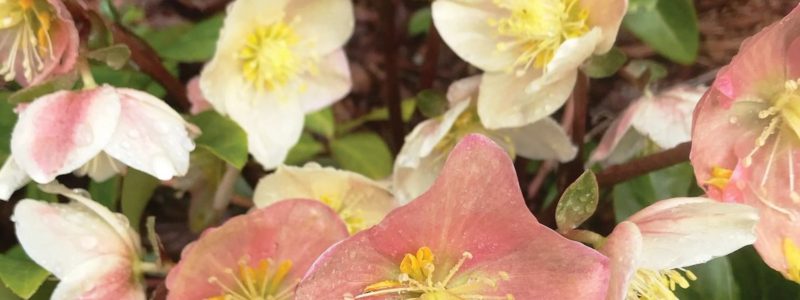
by Barbara Faurot
Emily Dickinson saved seeds “in homes of paper until the sun calls them.” For the 19th-century poet, these seeds were collected from last year’s garden, received from friends, or bought in the shops or from catalogs.
In Jefferson County, we have a strong community of seed farmers, sowers, and savers to carry on these traditions. As the Seed Savers Exchange, a nonprofit steward of heirloom seeds, puts it, “There’s something almost magical in the process of planting a tiny, humble seed, and watching it transform into a plant with broad, green leaves, magnificent flowers, and delicious fruits.”
Let’s start with a few basics. A seed is a specialized plant structure with an embryo and food storage structures housed in a seed coat. The seed germinates under favorable conditions and the embryo develops into a mature plant. The seed is nourished by the food reserves in the seed itself until photosynthesis begins. For annual plants, seeds developed at the end of the plant’s life cycle can be saved to plant the following season.
By saving seeds, gardeners become part of a community effort to reclaim seeds as a public resource. Seed savers help encourage biodiversity, foster self-reliance, increase food security, and develop seeds that thrive in our climate.
If you’ve never tried seed saving, there are several sources for locally developed seeds and expertise on how to grow and save them in your own garden.
Karen Seabrook, volunteer Master Gardener Seed Library Manager, suggests planning your garden to allow a little extra space for three to five plants. When they grow out and go to seed, you can cut off the dried seed head and save the seeds to plant and share.
Start with healthy non-hybridized plants such as green beans, peas, tomatoes, or lettuce. These self-pollinating annuals are easy to grow, and only a few plants are needed to reliably produce seeds. Open-pollinated varieties, including heirloom seeds, will produce plants identical to the parent. Seeds from hybrid cultivars will not produce plants with the same traits as the parents.
Once your seeds are ready to collect, store them in cool, dry, and dark conditions to protect seed viability. To maintain low moisture, store dried seed in an airtight container.
“The Seed Library is about educating people,” says Karen. “It offers gardeners the chance to borrow seeds, grow plants, and return the seeds you save at the end of the season.” The library is one of an estimated 450 seed libraries around the world, is offering remote services for the spring planting season; visit jefferson/master-gardener-seed-library/. Local organic seeds can also be found at plant nurseries, food co-ops, and farm stores.
Karen adds that the Master Gardener Seed Library enjoys the support of community partners for seeds, classes, and advice. Local farms like Seed Dreams and Oatsplanter Seed along with nonprofits Seed Savers Exchange, Organic Seed Alliance, and Friends of the Trees form a supportive network for education and seed development.
One example of local efforts is a new variety of sweet corn seed being developed to suit the Pacific Northwest maritime climate. From two parent seeds, the seed developer will “rogue out” certain traits to create a new seed that is adapted to our shorter growing season. Seeds from this Community Seed Project should be available by May through the Master Gardener Seed Library. Fill out the contact form on jefferson/master-gardener-seed-library/ about partaking in the community seed project.
Karen advises that the only mistake you can make is not to save your seeds: “If you haven’t tried before, just go for it! it’s okay to make mistakes. Save a few and see what you learn. Nature is pretty forgiving.”
For more information:
Master Gardener Seed Library https://extension.wsu.edu/jefferson/master-gardener-seed-library lends seeds and provides education on growing and saving seeds. Gardeners may request seed packets via the website. Contactless pick-up will be available from the WSU office in Port Hadlock or from the Jefferson County Library Bookmobile stops. Details on varieties offered, timing, and pick-up locations will be available in early March.
Seed Savers Exchange https://www.seedsavers.org/, a non-profit dedicated to collecting, growing, and sharing heirloom seeds and plants, offers detailed information for beginning and experienced seed growers and savers.
Organic Seed Alliance https://seedalliance.org/ offers education, research, and advocacy to promote seed diversity and help educate seed producers and savers. A free 30-page Guide to Seed Saving is one of many free publications available.
For any questions about home gardening, Master Gardeners at the Online Plant Clinic are always available to help: https://extension.wsu.edu/jefferson/gardening-2/plant-clinic/.
(Barbara Faurot is a Jefferson County Master Gardener and Master Pruner, working with other volunteers who serve as community educators in gardening and environmental stewardship.)
Published in the Port Townsend Leader February 10, 2021

